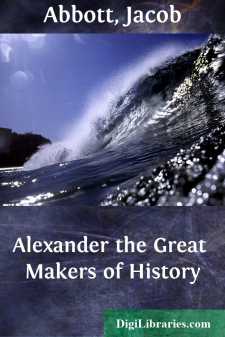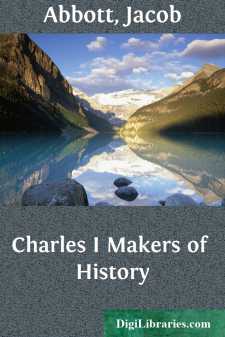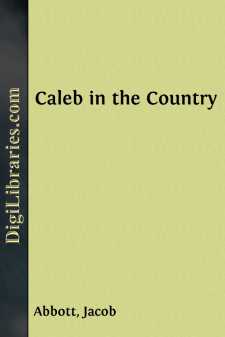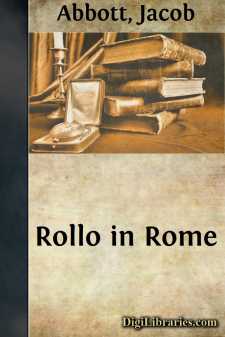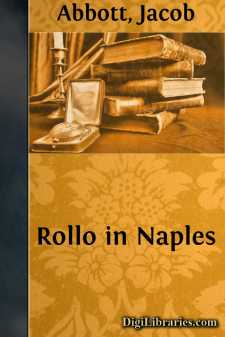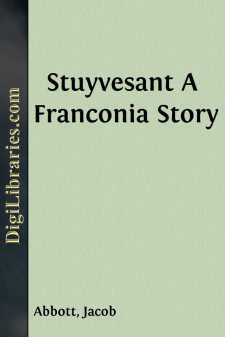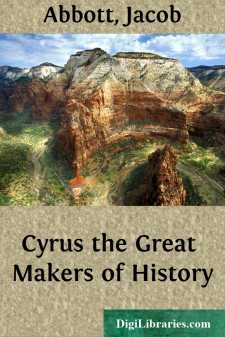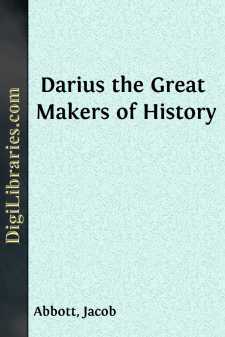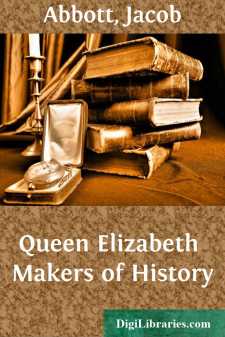Categories
- Antiques & Collectibles 13
- Architecture 36
- Art 48
- Bibles 22
- Biography & Autobiography 813
- Body, Mind & Spirit 142
- Business & Economics 28
- Children's Books 15
- Children's Fiction 12
- Computers 4
- Cooking 94
- Crafts & Hobbies 4
- Drama 346
- Education 46
- Family & Relationships 57
- Fiction 11829
- Games 19
- Gardening 17
- Health & Fitness 34
- History 1377
- House & Home 1
- Humor 147
- Juvenile Fiction 1873
- Juvenile Nonfiction 202
- Language Arts & Disciplines 88
- Law 16
- Literary Collections 686
- Literary Criticism 179
- Mathematics 13
- Medical 41
- Music 40
- Nature 179
- Non-Classifiable 1768
- Performing Arts 7
- Periodicals 1453
- Philosophy 64
- Photography 2
- Poetry 896
- Political Science 203
- Psychology 42
- Reference 154
- Religion 513
- Science 126
- Self-Help 84
- Social Science 81
- Sports & Recreation 34
- Study Aids 3
- Technology & Engineering 59
- Transportation 23
- Travel 463
- True Crime 29
Sort by:
by:
Jacob Abbott
His Childhood and Youth. B.C. 356-336The briefness of Alexander's career.Alexander the Great died when he was quite young. He was but thirty-two years of age when he ended his career, and as he was about twenty when he commenced it, it was only for a period of twelve years that he was actually engaged in performing the work of his life. Napoleon was nearly three times as long on the great field of...
more...
by:
Jacob Abbott
CHAPTER I. INFANCY. King Charles the Second was the son and successor of King Charles the First. These two are the only kings of the name of Charles that have appeared, thus far, in the line of English sovereigns. Nor is it very probable that there will soon be another. The reigns of both these monarchs were stained and tarnished with many vices and crimes, and darkened by national disasters of every...
more...
by:
Jacob Abbott
Chapter I. 1600-1622Born in Scotland.King Charles the First was born in Scotland. It may perhaps surprise the reader that an English king should be born in Scotland. The explanation is this:The circumstance explained.They who have read the history of Mary Queen of Scots, will remember that it was the great end and aim of her life to unite the crowns of England and Scotland in her own family. Queen...
more...
by:
Jacob Abbott
CALEB'S DISCOVERY. Caleb was a bright-looking, blue-eyed boy, with auburn hair and happy countenance. And yet he was rather pale and slender. He had been sick. His father and mother lived in Boston, but now he was spending the summer at Sandy River country, with his grandmother. His father thought that if he could run about a few months in the open air, and play among the rocks and under the...
more...
by:
Jacob Abbott
The Diligence Office. Rollo went to Rome in company with his uncle George, from Naples. They went by the diligence, which is a species of stage coach. There are different kinds of public coaches that ply on the great thoroughfares in Italy, to take passengers for hire; but the most common kind is the diligence. The diligences in France are very large, and are divided into different compartments, with a...
more...
by:
Jacob Abbott
Chapter I. The Vetturino. If ever you make a journey into Italy, there is one thing that you will like very much indeed; and that is the mode of travelling that prevails in that country. There are very few railroads there; and though there are stage coaches on all the principal routes, comparatively few people, except the inhabitants of the country, travel in them. Almost all who come from foreign...
more...
by:
Jacob Abbott
Chapter I. One pleasant summer morning Alphonzo was amusing himself by swinging on a gate in front of his mother’s house. His cousin Malleville, who was then about eight years old, was sitting upon a stone outside of the gate, by the roadside, in a sort of corner that was formed between the wall and a great tree which was growing there. Malleville was employed in telling her kitten a story. The...
more...
by:
Jacob Abbott
Herodotus and Xenophon. B.C. 550-401The Persian monarchy.Singular principle of human nature.Cyrus was the founder of the ancient Persian empire—a monarchy, perhaps, the most wealthy and magnificent which the world has ever seen. Of that strange and incomprehensible principle of human nature, under the influence of which vast masses of men, notwithstanding the universal instinct of aversion to...
more...
by:
Jacob Abbott
Cambyses. B.C. 530-524Cyrus the Great.About five or six hundred years before Christ, almost the whole of the interior of Asia was united in one vast empire. The founder of this empire was Cyrus the Great. He was originally a Persian; and the whole empire is often called the Persian monarchy, taking its name from its founder's native land.His extended conquests.Cyrus was not contented with having...
more...
by:
Jacob Abbott
Chapter I. 1533-1536Greenwich.The hospital.Its inmates.Greenwich Observatory.Manner of taking time.Travelers, in ascending the Thames by the steamboat from Rotterdam, on their return from an excursion to the Rhine, have often their attention strongly attracted by what appears to be a splendid palace on the banks of the river at Greenwich. The edifice is not a palace, however, but a hospital, or,...
more...


